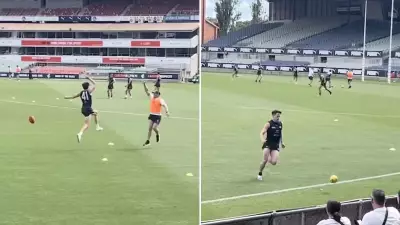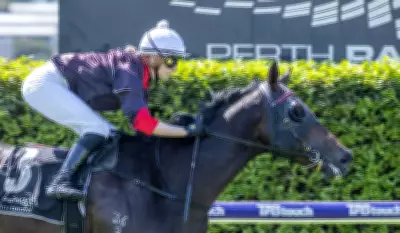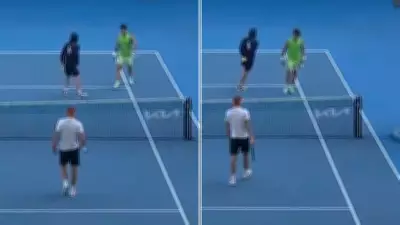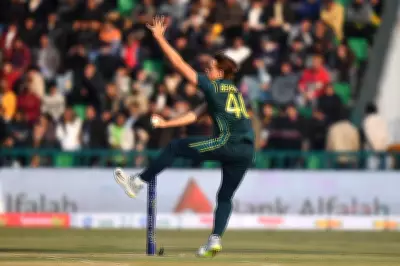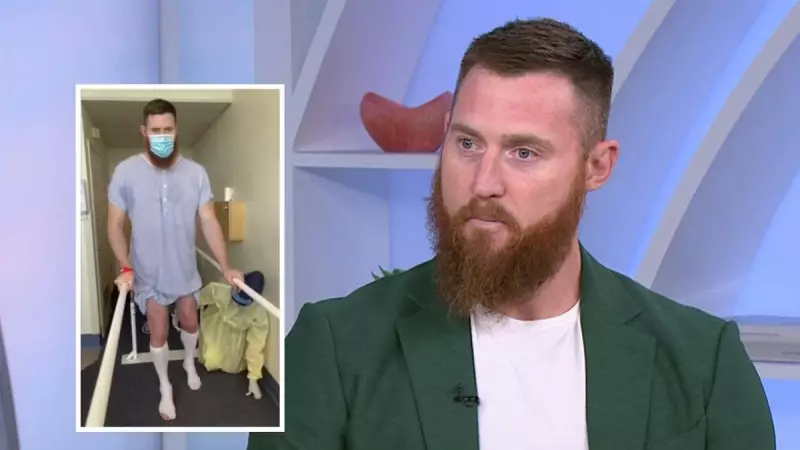
Australian basketball legend Aron Baynes has revealed the heartbreaking story behind the simple bathroom break that nearly ended his career and life during the Tokyo Olympics.
The incident that changed everything
During the Boomers' second game at the 2021 Tokyo Olympics, Baynes took what he describes as his usual superstitious last toilet stop before coming off the bench for the final quarter. That routine moment would turn into a life-altering catastrophe when he slipped on a wet floor in the changerooms.
"Apparently the floor was pretty wet and made me slip down," Baynes told The Morning Show. "I don't remember too much of it, I remember trying to get to the bathroom and then people came in after the game and I was stumbling around."
The fall aggravated a pre-existing neck injury, causing severe nerve damage and internal bleeding that left the NBA champion unable to walk. Within an hour of the incident, Baynes had lost feeling in his entire left side.
The lonely road to recovery
Baynes spent nearly two weeks in a Japanese hospital, mostly alone due to strict COVID-19 restrictions. He faced significant language barriers and began experiencing serious mental health challenges during his isolation.
"They had a bunch of surgeons around me and they wanted to do surgery and I just didn't give them permission," Baynes recalled. "I was going to play the next game, right? Bit stubborn, that mindset of I've got to be able to step on the court next time and be there for the guys."
His teammates went on to win bronze without him, with Patty Mills famously holding up Baynes' medal on the podium in a touching tribute to their absent teammate.
After returning to Australia, Baynes faced another eight weeks of intensive rehabilitation, learning how to walk again while continuing to battle both physical limitations and mental health demons.
The turning point
Baynes' mental health reached its lowest point after he failed to secure another NBA contract following his physical recovery. The disappointment triggered dark thoughts and pushed him to isolate himself from his family.
"There were points there where I didn't want to be around and I was pushing my family away," Baynes confessed. "That was the line in the sand for me. I was like 'there's not a future for me, I'm not worthwhile being around here, I can't support my kids in the way I wanted'."
The catalyst for change came when Baynes learned about another athlete's suicide after a battle with CTE. This tragedy forced him to reevaluate his own struggles and find purpose in his recovery.
"I need to figure out who I am and what's wrong with me because I've chosen to bring children into this world, they deserve to have me here and I can't take myself away from them," Baynes said.
Now back playing in the NBL, Baynes hopes his story can help others facing similar challenges. He emphasizes that while his basketball achievements were extraordinary, his injury - something as simple as falling in a bathroom - could happen to anyone.
If you need help in a crisis, call Lifeline on 13 11 14. For further information about depression contact beyondblue on 1300 224 636 or talk to your GP, local health professional or someone you trust.

